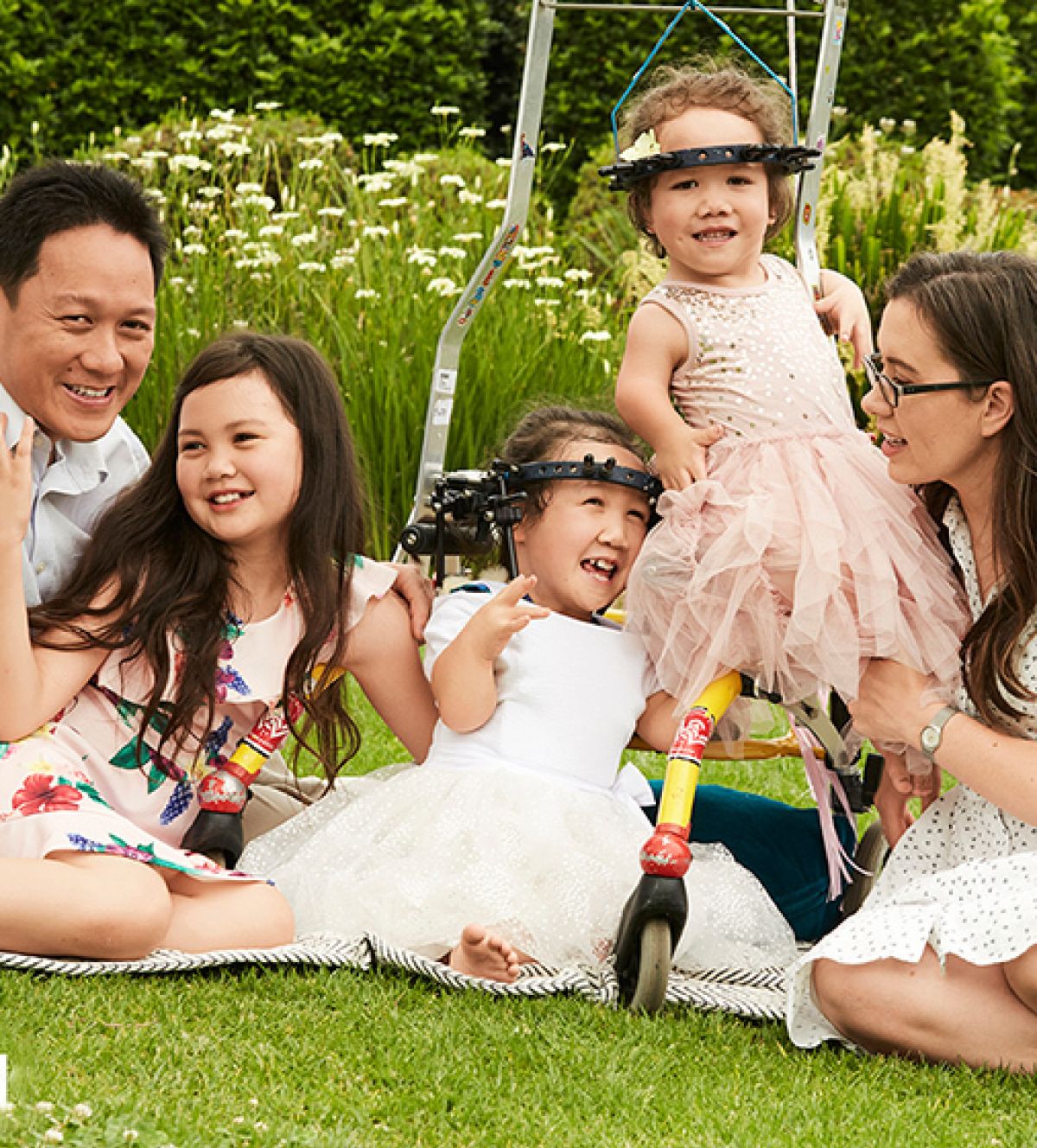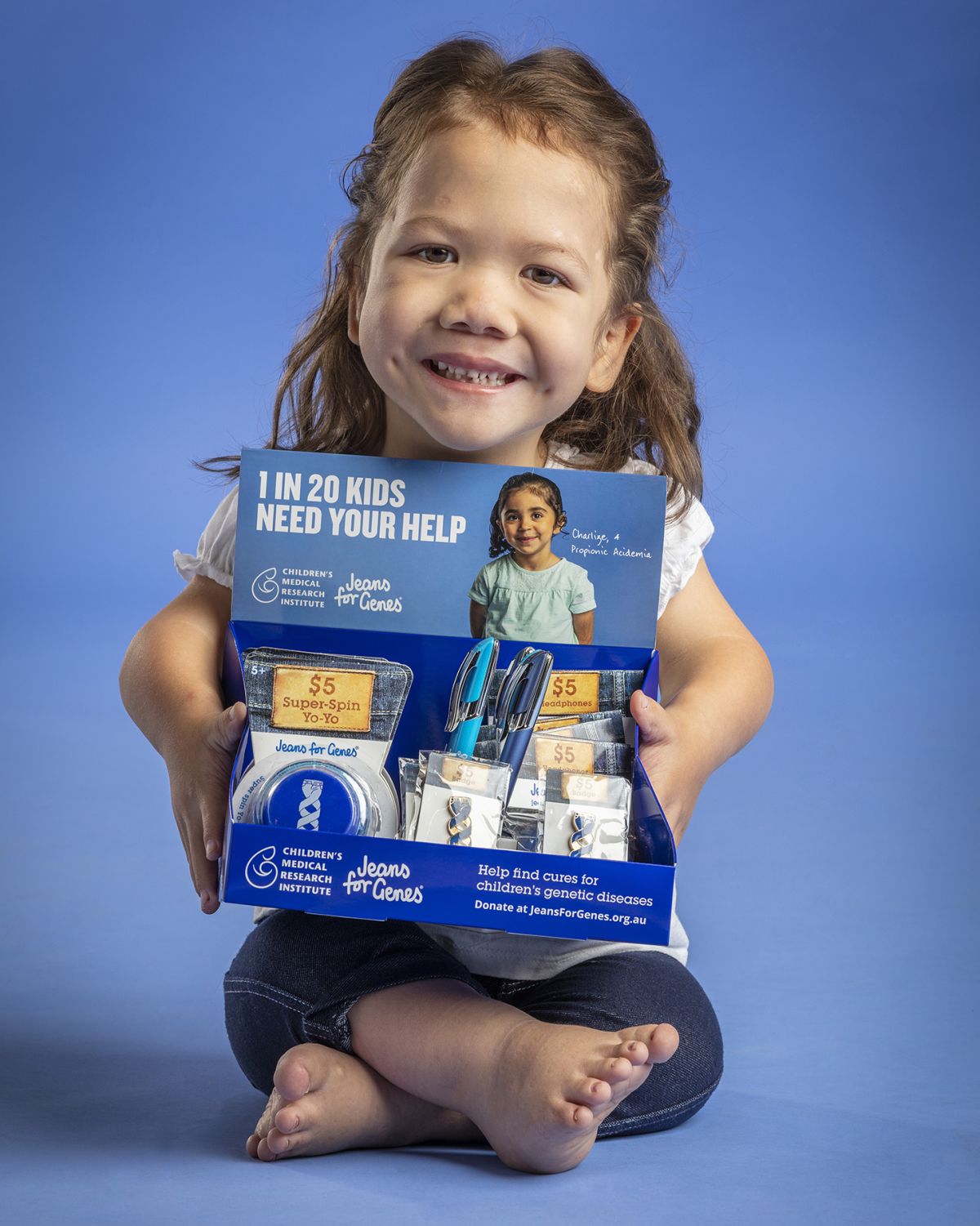
Briella
When Nicole and Bernard Luk found out their youngest child, Briella, had the same genetic condition as her sister, Maddy, they were torn between feeling saddened that the family’s struggles would begin all over again and content that she would at least have a partner in her journey.
Six years later, it is obvious that their shared experience has improved their individual outcomes.
“I think that when you have a rare disease, one of the things which can be a real struggle is that you're very isolated, very alone,’’ Nicole said. “A lot of people with rare diseases don't have anyone that they know with the same condition as them. And so, it's really been quite a blessing to have siblings with the same rare disease because they support each other and they have a bond which is really special and really unique. A lot of the challenges that they have been through they've been through together.’’

Nicole and Bernard’s eldest daughter, Lana, was born healthy. It wasn’t until Nicole was pregnant with their second daughter, Maddy, that their world changed. At 14 weeks they were told there was a high risk of Down Syndrome. The couple continued with testing and found out it was actually a form of dwarfism called Diastrophic Dysplasia. It mainly impacts the cartilage from the ears to the airways and their joints.
Learn more about Diastrophic Dysplasia here.
When the couple saw how well Maddy was developing and exceeding doctors’ expectations they decided to have another child, and then found out Briella had the same condition.
“We had a very positive picture of what life with that disability would look like. But still, I wasn't really prepared to be upset by it, but we were. When we found out, I realised we were going to face everything all over again, all of the struggles that we've had with her sister.’’
One of the biggest struggles the family have had to deal with was in 2018, when both girls needed their spines lengthened to take the pressure off their bodies in a process called ‘halo traction’. They then had to have surgery to fuse their spines. Briella was in hospital for nine months of that year.
“It was a funny year because they actually really loved being in hospital,’’ Nicole said. “They were so well supported. And I think that it really strengthened and solidified their bond, going through that experience together. For Maddy and Briella, they just bloomed and blossomed through the whole year. And Briella just said to me the other day, ‘I don't know why, but I really love hospital’.’’
It says a lot about who Briella is and how her sister, sharing the same condition, has supported her along the way.



“Maddy and Briella have this positivity in the way that they approach life. And even when they are going through things which look like challenges to us, they find ways to make it fun. And even when they were in hospital in halo traction, they would just make it a big game."
“They tend to bring out the best in each other, and they tend to cheer each other up. And even though there are times where they struggle with things, they’re able to work through it and find ways to focus on the positive, to still have fun. They're kids at the end of the day, and kids just want to have fun and have a laugh, and they’re no different from any other kids.’’
While Briella’s day-to-day at school can be physically difficult, her attitude gets her through.
“For Maddy and Briella, the body that they have is the only body that they have ever known,’’ Nicole said. “There's times where they wish that they could keep up with other kids. There are times that they want to run and jump and play and not be tired out and be able to compete with other kids physically, but they can't. They say things like, ‘Oh, I wish I was taller’ but then they realise they won’t be, and then they just manage to enjoy life with the body that they have.’’


“I really encourage everybody to get behind research because it develops treatments for your future, for your kids’ future, and for your grandkids’ future. It may not help us today, but it will help future generations.’’

The entire Luk family have been involved with advocating for education through Jeans for Genes and Children’s Medical Research Institute for many years.
“I'm really passionate about research because, without research, there's no way to develop better treatments for Diastrophic Dysplasia. There's currently no treatments for this condition. There have been some early studies showing that very simple medicines could make a massive difference in terms of the outcome. So, there's potential to take away a lot of the difficulties associated with this condition. I'm really passionate about developing new treatments for rare diseases.’’
Nicole said she hopes that international experience of COVID-19 now allows the wider public to understand why research is so vital.
“I hope it shows people the value of research,’’ she said. “That you need the research to have happened before you realise that you needed it. It is just so valuable. If after SARS there had been investment in a vaccine for coronaviruses, we may have had a vaccine for COVID-19. I hope that this experience is a wake-up call."